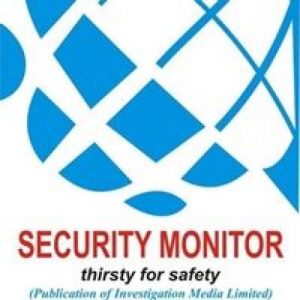Why We Must Monitor the Oil & Gas Sector, Says Olanrewaju Suraj as HEDA Reviews Marginal Fields Bids Licencing, Unveils Special Publication

Being Text of Press Statement by Mr Olanrewaju Suraju, Chairman, HEDA Resource Centre at the Public Presentation of “Spotlighting the Oil & Gas: A Review of the 2020/2021 Marginal Fields Bids Licensing Round in Nigeria”
Gentlemen of the press, colleagues from the civil society organisations, gentlemen and ladies! It is my pleasure to welcome you to the public presentation of our latest publication titled: “Spotlighting the Oil & Gas: A Review of the 2020/2021 Marginal Fields Bids Licensing Round in Nigeria.” This is a brief review of the publication even though this cannot in anyway substitute for reading the report. To begin with, I will take you through the background and why we are interested in studying this issue area and then I will give a brief highlight of the publication. Background to the study A marginal field is any discovered oil field that has been left unattended for a period of not less than ten (10) years effective from the date of its discovery or such field as the President may identify as a marginal field. The focus on marginal fields oil development anchors on the 1970s indigenization policy of government aimed at promoting and protecting indigenous capital to counter-balance multinational dominance of Nigeria’s economy. Why this study? Nigeria has had only two successful marginal fields bid licensing rounds (2003/2004 and the 2020/2021) in history. This study was necessitated given that Nigeria is at a critical time in Nigeria’s oil history replete with negative indices. Among these indices were low discovery and drilling activities, high cost of production, declining joint venture (JV) production and revenues earnings, and other gamut of challenges. The other challenges included manifest decline in gas for power supply, job creation, project funding constraints, maturing fields amidst aging facilities without corresponding development of new fields, growing insecurity compounded by oil theft, and uncertainties around stalled reforms anticipated from the implementation of the Petroleum Industry Act. All of these stifled investment and production outputs in a sense that terribly affected the growth and development of the oil and gas industry. The marginal fields bid round exercise was thus conceived to promote indigenous participation in oil and gas business such that will increase proven reserves to 40 billion and 220 trillion cubic feet respectively by 2030, revive long abandoned production fields to facilitate the delivery of three million barrels crude per day, raise money government, and boost employment and local capacity development. As a result of these issues, this study appraised the 2020/2021 BLR against the backdrop of established global standards for good practice and the country’s past experience with a view to identifying milestones worthy of mention and infractions for possible future redress.
Page 2 of 4 Method of Data Collection To ensure that justice is done to the subject, HEDA hired the service of two leading experts in the field, Henry Adigun and Dauda Garuba, to conduct the assessment. Thus, the study relied on both primary and secondary data sources collected from oil and gas stakeholders across public and private sectors as well as published materials in form of legal records, guidelines of past bid licensing rounds, reports and analyses of global trends and various media reports and analyses of the 2020/2021 exercise in Nigeria. Highlights of the 2020/2021 Bids Licensing Round In this our report, findings of the study show that the exercise was largely conducted in compliance with the guidelines that defined its process. This included use of a Pre-Qualification Committee largely constituted by lawyers who reviewed and decided on the submitted Expressions of Interest and a Bid Evaluation Committee comprising largely engineers and economic/business-minded members who assessed the technical and commercial plans of the applications submitted. From the point of announcement of the 57 fields that were up for grab to the point of issuance of certificates of award to the bid winners, the process captured 665 companies that expressed initial interest. A number of companies were dropped during the different processes of pre-qualification and bid evaluation, leading to 535 companies pre-qualified and 460 fully paid applications and bid processing fees. Of these, 400 companies finally submitted 477 applications for the 57 marginal fields that were on offer, out of which 161 companies were shortlisted for the bid with 48 out of the 57 fields emerging successful as at 28 June 2022. Successes of the Bids Licensing Round and Milestones According to the finding of this study, the 2020/2021 marginal fields bid licensing round recorded anticipated milestones including: Expansion of the space for indigenous participation in the oil and gas industry. Potential for growing proven reserves. Revenue generation to the tune of N200 billion and US$7 million to the federal government. Departure from past experiences of award of oil license to portfolio investors who ended up ‘trading’ the papers for a flip. Reversal of a sad narrative of perennial scandals about derailment from due process, corruption and conflict of interest (COI) perpetrated by Political Exposed Persons (PEPs).
Page 3 of 4 Opening of opportunity for many downstream petroleum companies to make a significant inroad into upstream petroleum development sector. Among such winners are A.A. Rano, Ardova Plc, Genesis, Matrix Energy, MRS, NIPCO and Shafa. Opportunity for proven reserves growth, anchored on near-oil production assets relinquishment by multinationals into the marginal bid pool, thus deepening the confidence for investment and potential for more production outputs, revenue earnings, job creation and local content development. Gaps and challenges Notwithstanding these achievements, this report we are presenting today highlighted that the 2020/2021 marginal fields BLR had its gaps and challenges among which were: Apparent exclusion of civil society which elicited widespread claims of opacity. Unanticipated delays precipitated by the COVID-19 pandemic, the transition from DPR to NUPRC in compliance with institutional and operational provisions in the PIA 2021, and the resort to instituting a committee to clean up the mess created under the DPR regime, leveraging the Alternative Dispute Resolution Centre (ADRC), High fees and levies charged which warranted a drop in the number of shortlisted applications and/or mergers/SPVs formed by companies; Allegations of undue access to insider information by some privileged persons that complemented already available Competent Person Reporting (CPR) and Net Person Value (NPV) reports to reach decisions about whether to top-up a nearly sealed bid to swing awards or simply walk away; Arbitrary lumping of strange bedfellows into same SPVs without regard to capacity, competence and previous experience in proposing/awarding share percentages and structure of governance, funding and profit-sharing formula for them; and ‘Hush-talks’ about official and unofficial payments by bidders, all of which happened only at the level of allegations without any official records/petitions. Lessons Learned Overall, this report submitted that despite taking longer than originally planned time, the 2020/2021 marginal fields bid exercise produced the desired outputs with useful lessons learned. The specifics of those lessons, according to this report are that: Nigeria and its upstream oil regulatory agency (i.e. NUPRC) can actually conduct a bid round without recount clogs of corruption scandals that have painted the country in bad image that has construed licensing as the weakest link in its oil and gas industry governance;
Page 4 of 4 Political interference by the Minister/Minister of State of Petroleum Resources can be mitigated with their undue and overbearing powers of discretion in allocating oil blocks curbed to allow for professional and business-driven interest; Capacity of NUPRC to mediate and reconcile such disputes and conflicts of equity negotiation, governance structure, funding and profit-sharing formula as demonstrated in the conflagration occasioned by the SPVs created out of co-joined fields is no longer in doubt; and Blessings arising from the delays caused by unforeseen contingency of late passage and assent to the PIA 2021 are indeed evident. Conclusion and Recommendations of the Report Although it took almost two decades to come after the first bid round held in 2003/2004, the 2020/2021 marginal fields bid licensing round passed the overall test of quality assurance. Among many others, the report recommends the following for advocacy and engagement ahead of future exercise: Full disclosure of information at all stages of the bid licensing round (BLR) from the very beginning of expression of interest up to the issuance of certificate of award to avoid the peddling of real or imagined allegations about happenings of untoward practices by stakeholders, particularly civil society who felt undermined and not carried along the process. More specifically, the process should disclose information comprising names of companies that expressed interest for which blocks/fields, names of their owners, amount of money paid, processes scaled through or fell behind, plans for host community development and contract transparency should be prioritized in the process. There is need for cross-institutional checks for key public policy and legal provisions such beneficial ownership and contract transparency are recommended to be held in strict collaboration with civil society. It is not just enough to claim transparency, it is also necessary for stakeholders to see produces as undeniably followed. There is need for broader stakeholders’ buy-in and respect for independence of investors/companies to determine who they merge with and with whom they formed SPVs and the level of equity participation and profit sharing formula should be guaranteed, instead of forcing a merger of strange bedfellows. There should be deliberate efforts by NUPRC to promote stakeholders’ collaboration to realise the central goal and objectives of every oil bid licensing round, while they collectively act as a check on one another for the overriding interest of the country’s economic growth and development. Gentlemen of the press, ladies and gentlemen, this is just a tip of an iceberg, the report speaks for itself. I thank you for listening!







